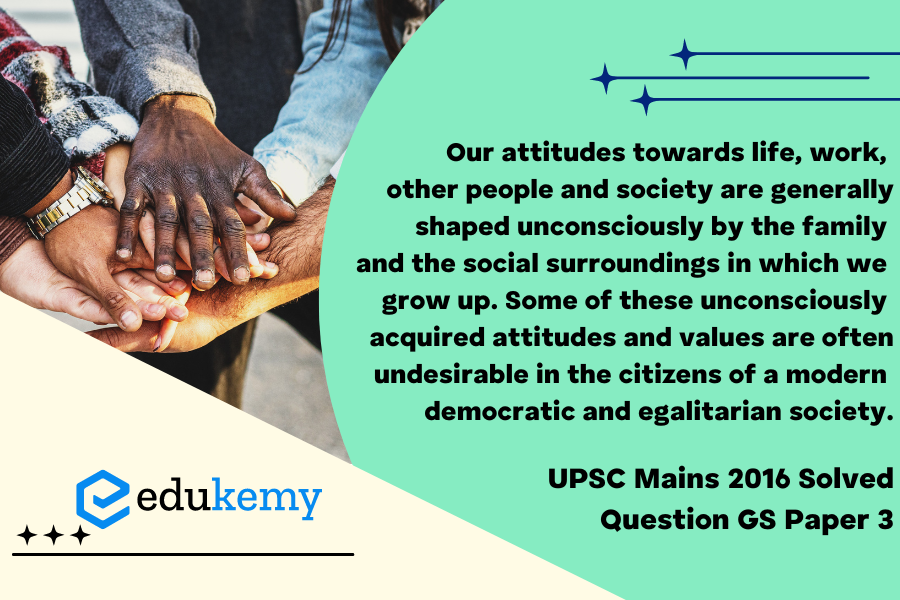Our attitudes towards life, work, other people, and society at large are intricately woven into the fabric of our upbringing, subtly shaped by the dynamics of our family and the social environment in which we mature. Unbeknownst to us, these formative influences leave an indelible mark on our perspectives, molding our beliefs and values. However, the unconscious assimilation of certain attitudes may not always align with the principles of a modern democratic and egalitarian society. In this complex interplay between personal development and societal expectations, some of these inadvertently acquired values may prove to be incompatible with the ideals that underpin a contemporary, inclusive community. As we navigate the complexities of our individual and collective consciousness, it becomes imperative to scrutinize and challenge these inherited notions, fostering a deliberate awareness that empowers us to contribute positively to the diverse tapestry of a modern, democratic society.
Contents
- 1 Q: Our attitudes towards life, work, other people and society are generally shaped unconsciously by the family and the social surroundings in which we grow up. Some of these unconsciously acquired attitudes and values are often undesirable in the citizens of a modern democratic and egalitarian society.
- 2 Decoding the Question:
- 3 Answer:
- 4 In case you still have your doubts, contact us on 9811333901.
(b) How can such undesirable attitudes be changed and socio-ethical values considered necessary in public services be cultivated in the aspiring and serving civil servants? (150 Words, 10 Marks)
Tag: Aptitude and foundational values for Civil Service, integrity, impartiality and non-partisanship, objectivity, dedication to public service, empathy, tolerance and compassion towards the weaker-sections.
Decoding the Question:
- In the Introduction, try to define Moral values.
- In Body, you can write the importance of moral values by parents on their children.
- In Conclusion, try to show why Public servants should be encouraged to follow codes of conduct and ethical norms.

Answer:
Change in such attitudes has to be carefully fostered since it requires changes in mindset. Morality is a system of beliefs and guidelines about what is right and good compared to what is wrong or bad. Moral development refers to changes in moral beliefs as a person grows older and gains maturity. Moral teachings are mandatory to change the attitudes among youths.
Ways to change attitudes and values:
- Changing the cognitive component of attitude – It can be done through proper socialization and democratic rearing of children.
- Developing emotional intelligence – To Create compassion, empathy, and kindness towards the weaker section of the society.
- Role modeling – ideas of the great leader should be propagated among youth and encourage them to inculcate these values.
Parents and educators should encourage children and youth to cultivate their character with emphasis on ideas of duty, concern for others, conscientiousness, and scientific outlook. The duties of citizens embedded in the constitution should be included in school syllabi. Students should be encouraged to participate in sports, games, and NCC to build team spirit. Public servants should be encouraged to follow codes of conduct and ethical norms.
In case you still have your doubts, contact us on 9811333901.
For UPSC Prelims Resources, Click here
For Daily Updates and Study Material:
Join our Telegram Channel – Edukemy for IAS
- 1. Learn through Videos – here
- 2. Be Exam Ready by Practicing Daily MCQs – here
- 3. Daily Newsletter – Get all your Current Affairs Covered – here
- 4. Mains Answer Writing Practice – here


